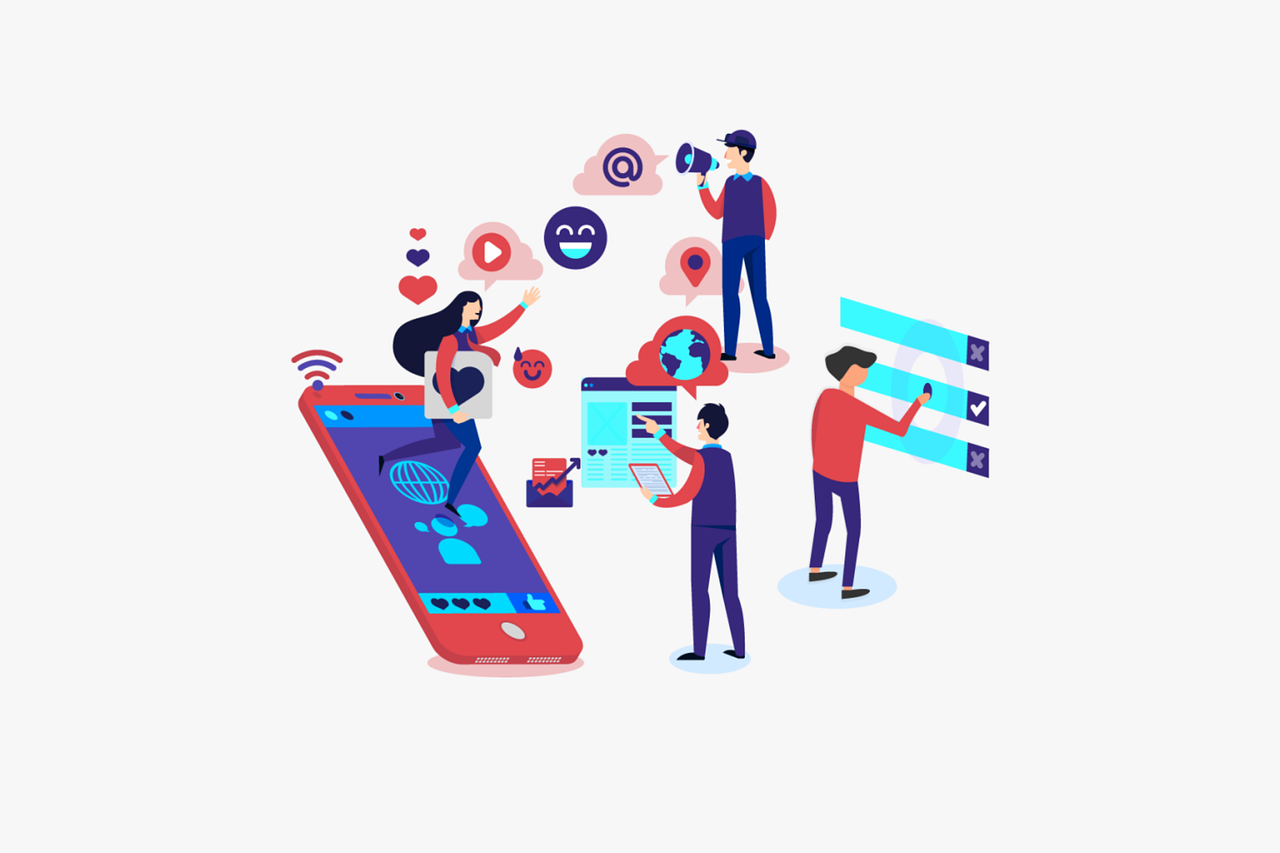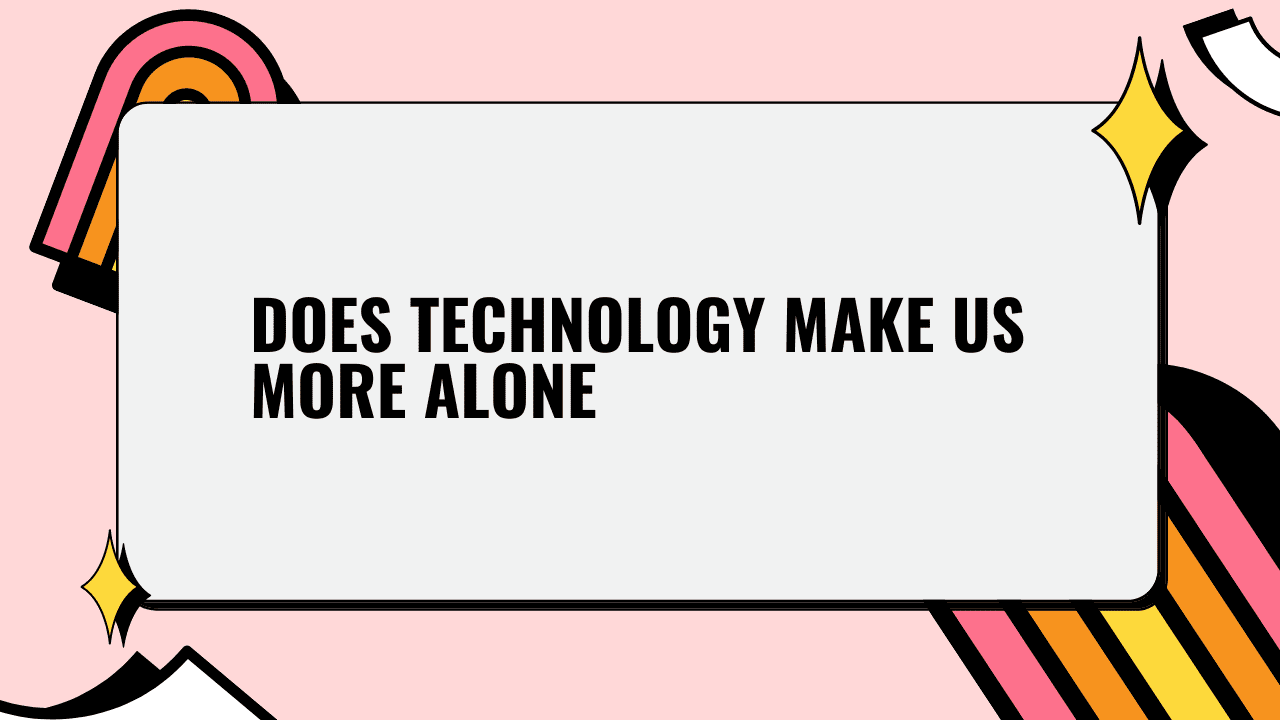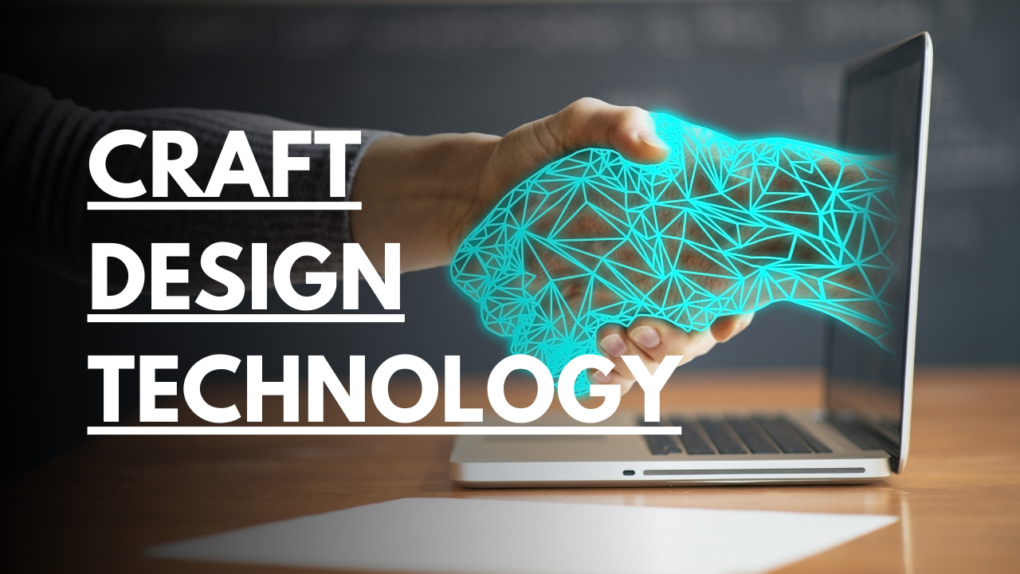In an era dominated by technology, where smartphones, social media, and virtual interactions have become an integral part of our lives, the question arises: Does technology make us more alone? While technology has undoubtedly transformed the way we communicate and connect with others, its impact on our sense of belonging and interpersonal relationships is a complex and multifaceted issue. This article explores the relationship between technology and loneliness, examining both the positive and negative effects of our digitalized world.
Impact of Technology on Communication
The Digital Revolution
With the advent of the digital revolution, does technology make us more alone? Communication has undergone a radical transformation. We now have instantaneous access to vast amounts of information and the ability to connect with people from all corners of the globe. This increased accessibility and convenience have revolutionized the way we interact, bringing both benefits and drawbacks. However, it is important to consider whether the constant presence of technology in our lives has resulted in a sense of isolation and detachment from meaningful face-to-face connections.
Changes in Communication Patterns
Technology has revolutionized the way we communicate, altering the traditional patterns of face-to-face interaction. The prevalence of text messaging, emails, and social media platforms has made it easier to stay connected, but it has also led to a shift in the depth and quality of our relationships. While we can communicate with people across the world at the touch of a button, these interactions often lack the depth and intimacy of in-person conversations.
Social Media and Online Interactions
Social media platforms have become a central part of our daily lives, but does technology make us more alone? They allow us to share experiences, connect with friends and family, and discover new communities. However, constant exposure to carefully curated highlight reels can lead to feelings of inadequacy and social comparison. While online interactions may provide an illusion of connection, virtual nature often fails to satisfy our innate need for genuine human contact. It is important to recognize the limitations of social media and prioritize nurturing meaningful relationships through face-to-face interactions and authentic communication. By doing so, we can mitigate the potential negative effects of technology and foster deeper connections in our lives.
The Paradox of Connectivity and Isolation
Hyperconnectivity and Its Consequences
Despite living in an age of hyperconnectivity, where we can reach out to others at any time, there is a growing paradoxical trend of increasing social isolation and loneliness. The abundance of virtual connections can create a sense of being “alone together” – surrounded by people online but lacking meaningful offline relationships. The constant stimulation from digital devices can leave individuals feeling overwhelmed and emotionally drained, contributing to a sense of isolation.
Shallow Relationships in the Digital Age

Technology has the potential to foster shallow relationships characterized by surface-level interactions and a lack of emotional depth. Online friendships and virtual communities may offer support and understanding, but they often lack the tangible aspects of human connection, such as physical touch and shared experiences. The absence of non-verbal cues and the reliance on text-based communication can hinder our ability to truly connect with others on a deeper level.
Social Comparison and Loneliness
Social media platforms have given rise to a culture of comparison, where individuals constantly compare their lives to the highlight reels of others. This can lead to feelings of inadequacy, envy, and loneliness. The pressure to present a perfect online persona can be mentally exhausting and alienating, as it creates unrealistic expectations and hinders authentic self-expression.
Technology’s Influence on Relationships
The Rise of Virtual Connections
The digital age has brought about a rise in virtual connections, enabling us to forge relationships with individuals we may have never met otherwise. Online dating apps, forums, and interest-based communities offer opportunities to meet like-minded individuals. While these connections can be meaningful and fulfilling, they often lack the depth and intimacy of face-to-face relationships.
Decreased Face-to-Face Interaction
As technology becomes more integrated into our daily lives, face-to-face interactions are gradually diminishing. The convenience of virtual communication can deter individuals from making the effort to meet in person, leading to a decline in genuine human connections. The absence of physical presence and the nuances of non-verbal communication can impede the formation of deep and lasting relationships.
Challenges in Building Meaningful Connections
Technology can present challenges in building and maintaining meaningful connections. The convenience and ease of virtual interactions may lead to a decreased willingness to invest time and effort into building relationships. Additionally, the presence of distractions, such as notifications and the temptation to multitask, can hinder the quality of our conversations and prevent us from fully engaging with others.
The Role of Technology in Mental Health
The Impact of Excessive Screen Time
Excessive screen time, particularly on social media platforms, has been linked to negative mental health outcomes. Studies have shown associations between increased social media use and symptoms of depression, anxiety, and loneliness. The constant exposure to idealized portrayals of others’ lives can contribute to feelings of inadequacy and low self-esteem, exacerbating the sense of isolation.
Cyberbullying and Online Harassment
The anonymity and distance afforded by technology have given rise to cyberbullying and online harassment. The lack of face-to-face accountability can embolden individuals to engage in harmful behaviors without considering the consequences. The experience of online abuse can have devastating effects on one’s mental well-being, leading to increased feelings of loneliness and social exclusion.
FOMO and Anxiety
The fear of missing out (FOMO) has become increasingly prevalent in the digital age. Social media platforms constantly bombard us with images and updates of others’ experiences, fueling a sense of anxiety and a fear of being left out. This fear can lead individuals to constantly seek validation and engagement online, further exacerbating feelings of loneliness and disconnection.
Strategies for Balancing Technology and Human Connection
Setting Boundaries and Time Management
To maintain a healthy balance between technology and human connection, does technology make us more alone? It is essential to establish boundaries and practice mindful technology use. Setting designated periods for digital detox, limiting screen time, and prioritizing face-to-face interactions can help foster more meaningful relationships and reduce feelings of isolation. By consciously allocating time for offline activities and engaging in genuine human interactions, we can counteract the potential negative impact of technology and ensure that it enhances rather than hinders our sense of connection with others.
Cultivating Offline Relationships
While technology has its benefits, it is crucial to prioritize offline relationships. Actively nurturing and investing in in-person connections can provide a sense of belonging and fulfillment that virtual interactions often lack. Engaging in activities that foster face-to-face interactions, such as joining clubs or participating in community events, can help cultivate meaningful relationships.
Mindful Technology Use
Being mindful of how we use technology can help mitigate its potential negative effects on our well-being. This includes being intentional with our social media usage, curating our online connections to ensure they are positive and supportive, and using technology as a tool for enhancing, rather than replacing real-life interactions.
Conclusion
Technology has undoubtedly transformed the way we connect and communicate with others, but does technology make us more alone? With the advent of the digital revolution, we now have unprecedented access to information and countless opportunities for virtual interaction. However, it is essential to recognize the potential consequences of excessive reliance on technology. While it can provide a sense of connectivity, there is a growing concern that it also has the power to amplify feelings of loneliness and isolation. Striking a balance between technology and human connection becomes crucial to maintaining meaningful relationships and overall well-being in the digital age.




